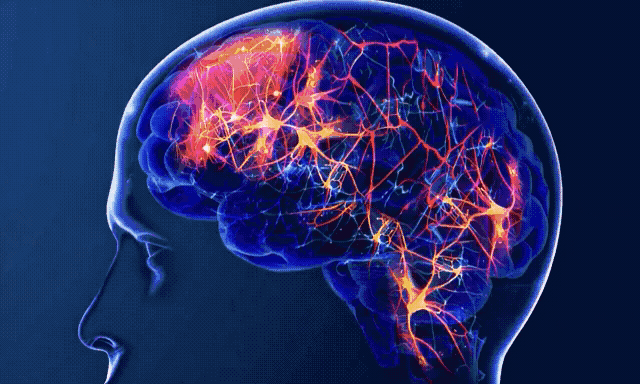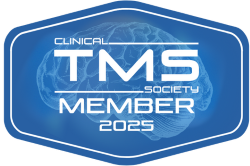Primary Care Week: Why Your Family Doctor Should Be Your Mental Health Doctor Too
October 6, 2025
How I went from treating common illness to revolutionizing brain health—and why this should be happening in every family practice

In this article:
- Dr. Nanos's personal journey from traditional primary care to brain-first medicine
- Why the current system forces family doctors to be mental health providers without proper tools
- Real stories from 15-minute appointments trying to address complex trauma
- The vision for primary care where TMS is as routine as checking blood pressure
- How mental health belongs in family medicine, not siloed in psychiatry
I used to think I was a pretty good family doctor.Did what family doctors are supposed to do.
Then I started paying attention to what was really happening in my exam rooms.
The real visits weren't about the things on the schedule. Lab follow-up. Annual physical. Medication refill. The real visits started when I was washing my hands, about to leave.
"Oh, doctor, one more thing. I haven't been sleeping well."
"I know this isn't what I'm here for, but I've been feeling really anxious."
"I'm probably fine, but I cry every day and I don't know why."
This is National Primary Care Week. And I want to tell you how I discovered that everything I thought I knew about family medicine was wrong.
The mental health crisis isn't happening in psychiatrists' offices. It's happening in exam rooms like mine. Every single day. And most of us primary care doctors are completely unprepared for it.
Medical school taught me to diagnose strep throat and manage hypertension. Nobody taught me what to do when a thirty-five-year-old mother breaks down crying because she hasn't felt joy in six months. But that's what primary care has become. The place where people finally say the words they've been holding inside.
Because they trust us. We've been their doctors through flu shots and broken bones and pregnancy scares. When their mental health starts unraveling, we're the first call they make.
Take Michael. Successful engineer, came in for his annual physical. Blood work perfect, EKG normal, prostate fine.
Then, as I'm updating his chart: "Doc, I think I might need to talk to someone. I can't concentrate at work. Haven't felt like myself in months."
I have three minutes before my next patient. He needs an hour.
The system says: write a prescription for Zoloft, refer to therapy, follow up in three months.
But therapy has an eight-week wait. The medication might work, might not, takes six weeks to know. Meanwhile, Michael's marriage is struggling and his work performance is tanking.
He's looking at me like I have answers. And all I have is a prescription pad and good intentions.
This was my reality for years. Watching patients cycle through medications that sort of helped. Referring to therapists who weren't taking new patients. Feeling helpless while people suffered.
I was managing mental illness, not treating it.
Then everything changed when I discovered TMS.
Suddenly I wasn't just handing out prescriptions and hoping for the best. I was actually healing brains.
Think about it. We already know their medical history, their family dynamics, their stress patterns. We've earned their trust over years of routine visits.
We've become the de facto mental health workforce. But we're working with Stone Age tools.
What if we had the same technology for treating depression that we have for treating diabetes. What if mental health treatment was as straightforward as checking blood pressure. That's the vision I'm working toward. Brain-first primary care.
Lisa, marketing executive, came to me convinced she was developing early dementia. Couldn't focus, making mistakes at work, forgetting conversations from the day before.
Her brain MRI was normal. Her labs were perfect. But her cognitive function was clearly impaired.
In traditional primary care, I would have referred her to neurology. Maybe started her on Aricept. Told her to "monitor symptoms."
Instead, I treated her brain directly with TMS. Targeted the circuits responsible for executive function and working memory.
Two months later, she's sharp as ever. Handling complex projects, making strategic decisions, feeling confident in her cognitive abilities again. "You gave me my brain back," she said.
This is what's possible when primary care has real tools for brain health.
But here's what frustrates me. Most primary care doctors still don't know TMS exists. Or they think it's some specialty treatment only available in academic medical centers.
They're still stuck in the old paradigm. Mental health problems get pills and referrals. Physical health problems get real medical intervention.
As if the brain isn't a physical organ that can be treated medically. But it requires a fundamental shift in how we think about mental health.
We need to stop treating depression and anxiety like character flaws that require therapy and willpower. We need to start treating them like medical conditions that require medical intervention.
The brain is an organ. When it's not functioning properly, we should fix it. Not just manage symptoms or hope talk therapy does the trick.
At KIND TMS, I've integrated brain treatment into routine primary care. Mental health isn't a separate service. It's part of comprehensive medical care.
Patients don't have to choose between seeing their family doctor and getting mental health treatment. They get both in the same office, from providers who know their whole story.
This is what National Primary Care Week should celebrate. Not just the family doctors who manage chronic diseases, but the ones who are revolutionizing what primary care can be.
Brain-first medicine. Where mental health is treated as foundational to all health. Where depression screening doesn't just mean handing out questionnaires. It means having real tools to fix what's broken. Where anxiety isn't managed with benzodiazepines and breathing exercises. It's treated by rebalancing the neural circuits that create calm.
The future of primary care is brain-first. Mental health integrated into medical care. TMS as routine as an EKG.
Your family doctor shouldn't just be monitoring your mental health. They should be treating it. This is what brain-first medicine looks like.

Meet the Author
Dr. Georgine Nanos, MD, MPH
Founder of Kind Health Group







